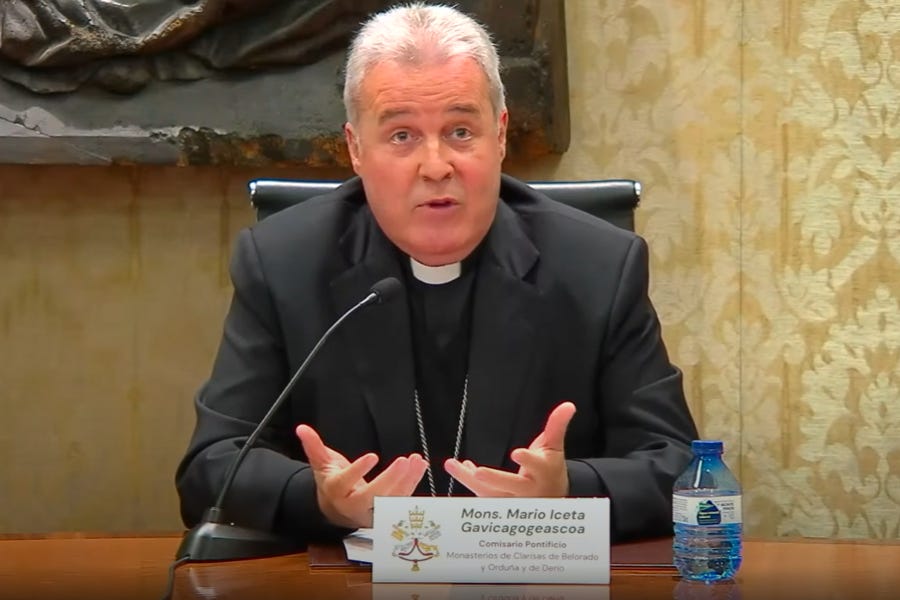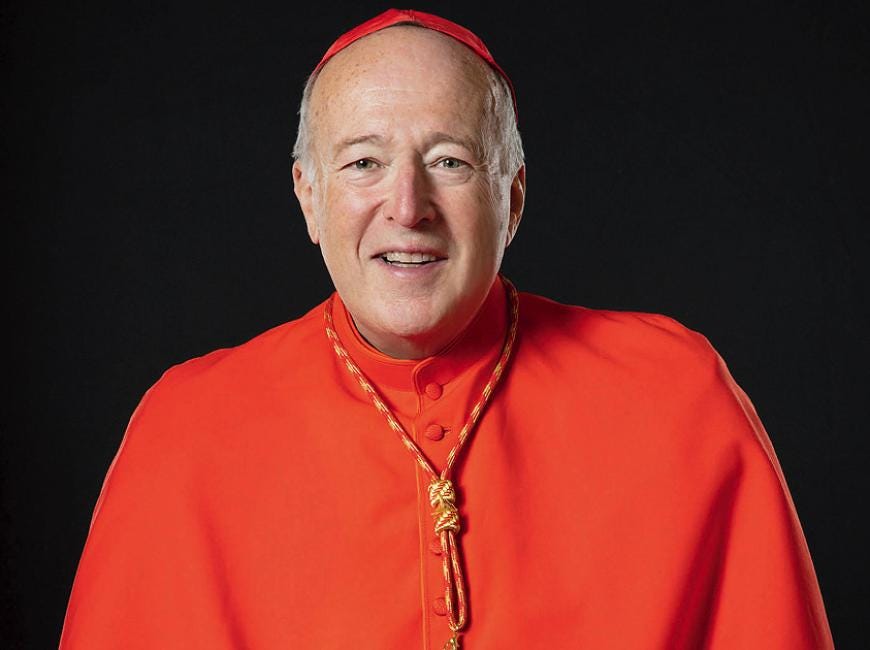A Spanish archdiocese announced Saturday that 10 Poor Clare nuns had incurred excommunication after they declared they had “voluntarily separated” from the Catholic Church.
The Archdiocese of Burgos said June 22 that a decree of excommunication signed by its Archbishop Mario Iceta had been sent to the 10 members of the Poor Clare community in the northern Spanish village of Belorado.
The archdiocese said the decree was issued after Church officials received a registered fax June 21, signed by the 10 nuns, rejecting a summons to appear before a tribunal the same day to answer a charge of schism.
Schism is defined by canon law as the “refusal of submission to the Supreme Pontiff or of communion with the members of the Church subject to him.”
The penalty attached to the canonical crime of schism is excommunication.
The 10 nuns, who belong to a 16-member community, said in the fax that they had already disassociated themselves from “the conciliar Church” in May, when they signed a 70-page “Catholic Manifesto” describing the post-Vatican II Catholic Church as illegitimate.
They added that they did not “recognize the authority of this tribunal, nor its jurisdiction over souls, and even less over us — after having separated voluntarily to adhere to the Catholic Faith — nor, therefore, the canonical penalties that derive from it.”
The archdiocese underlined that the excommunication decree issued by Iceta — who was appointed pontifical commissioner for the community in May — was “a juridical action seen by the Church as a medicinal measure, which encourages reflection and personal conversion.”
“The Church always shows her heart of mercy and, as a Mother, is ready to welcome her children who, like the prodigal son, trust in God’s mercy and set out on the way back to the Father’s house,” the archdiocese said.
The archdiocese noted that other nuns belonging to the Belorado community had not incurred excommunication because they did not endorse the schismatic declaration.
The group that has not incurred excommunication consists of five older nuns and three others who are not currently living with the Belorado community but are incardinated in it.
The archdiocese announced that the Federation of Poor Clares of Our Lady of Aránzazu would send nuns to take care of the elderly sisters at the convent in Belorado, as the 10 nuns who currently look after them are obliged to leave following their excommunications, which also entail their dismissal from consecrated life.
The Spanish website Religión Digital said June 24 it was unlikely that the excommunicated nuns would leave voluntarily, as they had previously insisted, through a spokesperson, they were the rightful owners of the convent’s assets.
The Burgos archdiocese is preparing for the possibility that the case will go to the Spanish courts.

At a June 24 press conference, Archbishop Iceta said: “If there is no voluntary departure in the near future, the legal services will have no choice but to initiate any legal action that may be necessary.”
He described this as “a particularly sensitive issue,” as members of the Federation of Poor Clares of Our Lady of Aránzazu need to access the monastery to care for the elderly nuns, and ensure they can receive the sacraments and Catholic spiritual care.
The archdiocese has not set a deadline for the 10 nuns’ departure.
The archbishop said: “The Church will continue to wait in prayer with open doors so that these ex-religious women will be aware of the truth of their reality and undertake the journey home, as the parable of the prodigal son expresses in a hopeful and consoling way, where they will be welcomed with love and mercy.”
Members of the Belorado community announced in May that they were leaving the Catholic Church and placing themselves under the jurisdiction of a self-proclaimed bishop who was excommunicated in 2019.
Sr. Isabel of the Trinity (Laura García de Viedma), the community’s superior, announced the decision in a five-page open letter, sent to friends and benefactors on May 13 and published on the convent’s website.
In the open letter, accompanied by the “Catholic Manifesto,” she said that the community would put itself under the jurisdiction of Pablo de Rojas Sánchez-Franco, who she described as a “legitimate bishop of the Holy Catholic Church.”
The letter also highlighted a real estate dispute, complaining that the Vatican had blocked the sale of an empty monastery owned by the community in Derio, a town in northern Spain.
The sale, the nun said, would have permitted the community to pay for a monastery in Orduña, a municipality near Derio, which it hoped to purchase from another Claretian community in Vitoria, the capital city of the Basque Country.
Blocking the purchase amounted to a conspiracy to dismantle “traditionally minded communities and keep their real estate to sell,” she argued.
Although the superior insisted that the nuns’ decision was unanimous, one member of the community publicly declared that she opposed the step.
Sister María Amparo said in an interview in late May that several nuns were unaware of the decision beforehand.
“I was watched the whole time so that I wouldn’t be able to speak to the older sisters,” she said.
“They didn’t even let me say goodbye to them. They probably don’t even realize I left. But it was a firm decision. I had to leave, to avoid being a part of that cult.”





